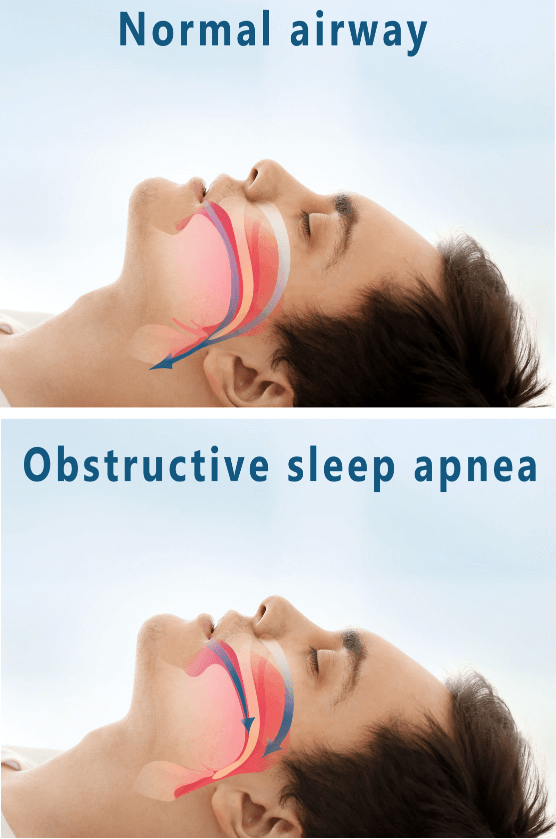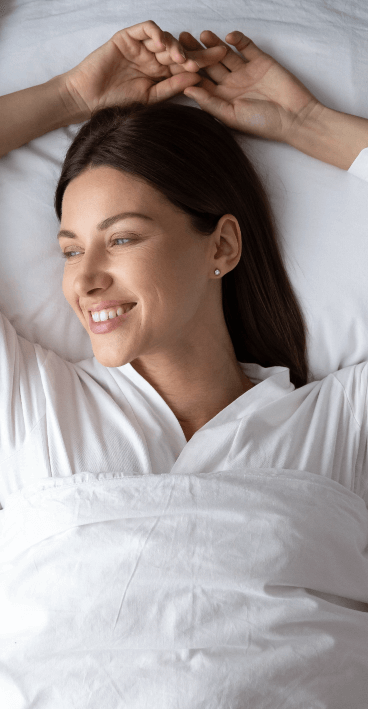Sleep is a vital restorative process for our body. The effects of lack of sleep impacts the whole-body system. Children’s face growth and development concerns as a result of inadequate sleep, impaired memory, decreased abilities to regulate emotions and impulses and impaired reasoning abilities.
Sleep apnea is a frequent cause of chronic fatigue that can affect children and adults and significantly impacts a person’s quality of life, causing difficulty concentrating, headaches, restlessness, short-term memory issues, moodiness, and more. These challenges can eventually lead to poor performance at work or school, tension in relationships, and an inability to complete simple daily tasks.
Sleep apnea is defined as blocked breathing for 5 or more times per hour while a person is asleep, for at least 10 seconds each time. Keep in mind that the average time is 22 seconds of no breathing, causing a significant drop in blood oxygen levels. There are 2 types of sleep apnea:


With lower blood oxygen levels comes a greater risk of serious health complications. Your heart works harder to pump more blood when it senses the lack of oxygen. Additionally, your brain must partially reawaken to resume breathing, preventing it from achieving the deep REM sleep we all need. Imagine a machine working overtime that does not receive the reset and shut down it needs to function well.
Those with extreme sleep apnea are at greater risk of:
Untreated sleep apnea also presents dental health complications because it causes mouth breathing, which leads to dry mouth. Dry mouth increases the risk of tooth decay, gingivitis, and periodontal disease.
Book an appointmentDr. Newman will start with an assessment of your teeth, gums, and overall health history, including dental and medical. At Lakeview Dental, we want to understand your current sleeping habits, symptoms, and any challenges you’re facing with the complications of interrupted sleep. This allows Dr. Newman to determine what type of sleep apnea you have or if it’s a different condition and create the right course of treatment for you.
Dr. Newman uses an overall-health approach to determine the possible cause of a patient’s sleep apnea, which can be a small airway, large tonsils, allergies, obesity, smoking, family history, high blood pressure, enlarged tonsils, and more. Along with oral devices, she may recommend lifestyle changes or may refer you to Ears Nose and Throat doctor.
At Lakeview Dental, we monitor sleep apnea patients closely to treat any tooth decay early on and look for signs of gum disease.
Sleep appliances keep the airway open during sleep and are an effective solution for sleep apnea. Appliances are custom-made to properly fit the patient’s mouth. At Lakeview Dental, Dr. Newman is qualified and experienced to fit oral appliances so they are comfortable and easy to wear for the patient.
As part of your care, Dr. Newman will recommend some good sleep hygiene tips to practice that can help improve the quality of your sleep. This can include:
After you’ve started your treatment, we will follow up with you to see if there are any improvements and make necessary adjustments if you’re not seeing the results you want.
